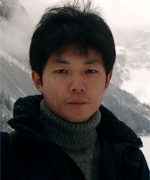Tutorial Speaker
Dr. Manabu Kano
 Associate Professor
Associate Professor
Department of Chemical Engineering, Kyoto University
Biography
Dr. Manabu Kano graduated from Department of Chemical Engineering, Kyoto University, in 1992. After he got master degree in 1994, he took a position of instructor at Kyoto University. In 1999, he got Ph.D. from Kyoto University. From 1999 to 2000, he had been a visiting scholar at the Ohio State University, US. Currently, he is an associate professor of Department of Chemical Engineering, Kyoto University.
Dr. Manabu Kano has conducted researches in collaboration with various industries such as semiconductor, chemical, steel, and pharmaceutical. His research interest has focused on process data analysis for quality improvement, process monitoring, and process control. He has received several awards including Research Award for Young Investigators (The Society of Chemical Engineers, Japan), Best Paper Award, Technology Award, and Pioneer Technology Award (The Society of Instrument and Control Engineers), and also Instrumentation, Control and System Engineering Research Award (The Iron and Steel Institute of Japan).
Presentation Title
Does Virtual Sensing Technology Work at Your Workplace? - Proper Use of Process Data Analysis
Abstract
In the semiconductor industry, virtual metrology is an indispensable technology to increase productivity. However, the effective use of virtual metrology is not easy due to changes in equipment characteristics with time, in particular abrupt changes after equipment maintenance, a huge number of processes, parallelized equipment in each process, and individual difference of equipment. Such a situation is not peculiar to the semiconductor industry but common to other industries. For example, software sensing or virtual sensing technology has been widely used in the chemical, pharmaceutical, or steel industry, but its maintenance is recognized as one of the biggest problems.
When statistical approach is used to realize virtual sensing, it is crucially important to properly analyze equipment data. Process data analysis includes outlier detection, noise reduction, selection of modeling technique and input variables, model construction and evaluation, and so on. A key question is: do you properly use process data analysis at your workplace? I hope you can say yes confidently; what is your answer?
In this tutorial, basics of process data analysis are reviewed, and practical methods of outlier detection and input variable selection, which might not be known to the semiconductor industry, are introduced. In addition, locally weighted partial lest squares regression (LW-PLS) and its industrial applications are introduced as an approach to solving the model maintenance problem.
